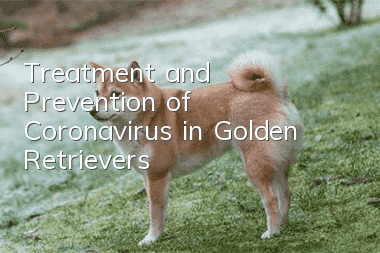Feeding precautions for Skye Terrier

The young period of the Skye Terrier is the main stage of growth and development. The body grows rapidly, so sufficient nutrition must be provided. Generally, the body and weight mainly increase in the first 3 months after birth, the body length mainly increases in 4 to 6 months, and the height increases after 7 months. Therefore, different diets should be formulated according to different development stages. Puppies after weaning often appear restless, have a loss of appetite, and are prone to illness due to sudden changes in living conditions. The feed selected at this time should be palatable and easy to digest.
Puppies under 3 months old should be fed at least 4 times a day. For dogs with poor appetite, the method of feeding first, then the good ones, and feeding less often can be used. Feeding food first, then food first, can keep the dog's appetite strong. Feeding less and more frequently can make the dog always feel not full and prevent it from being tired and picky eaters.
Puppies under 3 months old should be fed porridge, milk or soy milk with appropriate amounts of chopped fish, meat and chopped and cooked vegetables. In order to reduce feed costs without affecting the nutrition of puppies, organs such as pig and cow lungs can be cooked and chopped, mixed with vegetables, cornmeal and other cooked foods, and then fed to dogs. This is economical and dogs love to eat. . Some people think that feeding dogs all meat will make them strong. In fact, this is a wrong approach.
Puppies aged 4 to 6 months will eat more and gain weight quickly. The amount of feed they need every day will also increase, and they should be fed at least 3 times a day. Dogs after 6 months old can be fed twice a day - the puppy's diet should be fed according to the original dog owner's diet first, and then gradually changed.
Eating all meat not only does not make dogs strong, but also causes diarrhea in most dogs due to indigestion and difficulty in absorption. Although meat contains a lot of protein, it contains less vitamin A, vitamin D, vitamin E and vitamin A. At the same time, meat contains less calcium and more phosphorus. Long-term meat consumption can easily cause bone formation disorders in puppies due to an imbalance in the calcium and phosphorus ratio. Limbs are prone to breakage or crookedness. For large dogs such as Great Danes, it is not advisable to feed large amounts of meat too early, otherwise it may cause the forelimbs to bend. Water is absolutely indispensable when raising puppies. A basin of water should always be placed in a fixed place so that it can drink freely before and after eating and exercising.
If the dog can drink enough clean water from an early age, it can develop normally and have a healthy gastrointestinal health. Especially in summer and autumn, when the weather is hot, the water in the body evaporates quickly, especially for active puppies. If the water is not replenished in time, it can easily cause water shortage in the tissue, and even cause dehydration, which will affect the dog's health. It is best to drink it every time. After daily exercise, let the dog drink some glucose water.
Puppies should be fed with calcium powder and vitamins, which are necessary for the growth of teeth and bones. Especially purebred dogs with larger skeletons, such as Boxers, Great Danes, etc., need more calcium when they are puppies. Usually, for growing puppies under 1 year old, the daily dose of calcium powder is about 1 teaspoon of calcium powder for every 2 kilograms of body weight. As the age increases, the dose of calcium powder should be increased proportionally. After 1 year old, since the dog has entered the mature stage and the growth of teeth and bones has stabilized, the demand for calcium powder is relatively reduced.For every 4.5 kilograms of body weight, about 1 teaspoon of calcium powder is enough per day. However, there should be an appropriate amount of outdoor exercise every day and exposure to ultraviolet rays to facilitate the absorption of calcium. Too much calcium powder can be harmful rather than beneficial. In terms of feeding and management, puppies require more energy from their owners than adult dogs. Special attention should be paid to preventing a few puppies from overeating, leaving other puppies without enough to eat. The daily food intake of each dog should depend on the size of the dog, which depends on the observation of the breeder.
Pet food experts remind you: You can tell how full or hungry a dog is by looking at its food intake. If the dog eats quickly and swallows in big mouths, it means there is no problem with appetite; after eating, there is food left in the food bowl, indicating that it has fed too much and may be overly full; if the dog continues to lick the empty food bowl with its tongue, or with expectation He looked at the owner with his eyes, indicating that he was not full. It is not advisable to overfeed puppies, it is best to be 70 to 80% full. In addition, since the gastrointestinal tract of puppies is still in the process of development, more attention should be paid to hygiene to prevent gastrointestinal diseases.
- How long does dog hair loss last in spring? Teach poop owners several ways to reduce dog hair loss!
- Why is the dog always barking for no reason?
- What should I do if my golden retriever vomits after eating too much?
- Things to note when choosing puppy food
- The dog looks "guilty" after being taught a lesson by his owner. Does he really know he was wrong?
- What are the precautions and preparations for dog breeding? A complete guide to dog breeding!
- What are the symptoms of dog mite skin disease?
- A Practical Guide to Dog Bathing and Grooming in Winter
- The most effective way to deal with vomiting in dogs
- What medicine should a Pekingese dog take if it has a fever?



